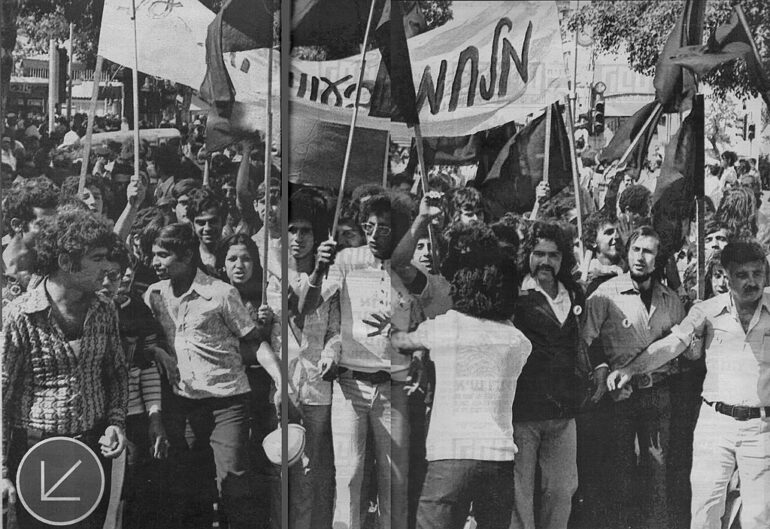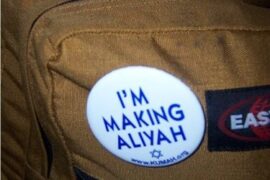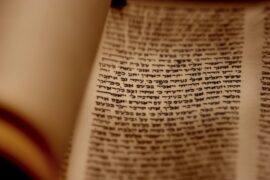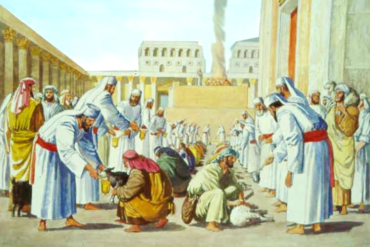Charlie Biton, the Mizraḥi organizer who founded and led the Israeli Black Panther movement in the 1970s, died on Saturday at the age of 76.
Born in Casablanca, Morocco in 1947, Biton moved to Israel with his family at the age of two, and grew up in Jerusalem’s impoverished Musrara neighborhood.
In 1971, Biton was a founder of Israel’s Black Panther movement, named for the US-based revolutionary Black Maoist organization of the same name, to fight for the rights of Jews from the Arabic-speaking Diaspora against discrimination by Israel’s westernized elites and dominant state institutions.
In May of that year, the Panthers led the “night of the Panthers” in which thousands of demonstrators clashed with police and roughly 70 protestors were arrests.
In 1972, the Israeli Panthers organized the “Milk Operation” stunt, in which bottles of milk that had been intended for residents of Jerusalem’s upscale Rehavia neighborhood were appropriated and distributed to residents of the so-called “Asbestos buildings” in the Jerusalem slums.
The following year, Biton ran for Knesset as part of an official Black Panthers party list and won 13,332 votes, falling shy of the 1% threshold to enter parliament.
In February 1974, Biton was brought up on charges of assaulting a policeman. After going into hiding to avoid prison, he ultimately turned himself in. He was granted clemency shortly after beginning his sentence due to lobbying by Sephardic Chief Rabbi Ovadia Yosef and lawmaker Shulamit Aloni (Ratz).
In 1977, Biton successfully ran again for Knesset on the communist Ḥadash list, as part of a Black Panthers faction under the broader Ḥadash umbrella.
In September of 1980, Biton and Tawfik Toubi were the first Israeli lawmakers to meet publicly with the leaders of the PLO, including Yasser Arafat, claiming he had a mandate from his constituents to seek peace with the Palestinians. But thirty years later, Biton firmly rejected the American-backed “two-state solution” and told a Ynet journalist that the Palestinians “have methods that fit the Middle East that Ashkenazim will never understand.”
During that same interview, Biton predicted that a Mizraḥi Jew could “never be elected prime minister” of Israel, claiming that “the state will not allow such a thing, nor will the media, which belittle Mizraḥim and favor Arabs. Even if there remains only one Ashkenazi in the country, he will be prime minister.”
Biton split away from the Ḥadash party in 1990 to represent an independent Black Panthers faction but failed to reenter Knesset in the 1992 elections.
In 2015, Biton shocked many Israelis when he publicly endorsed the Mizraḥi-Ḥaredi Shas party, following many years of silence on political matters.
But if we examine the fundamental values at the base of Biton’s life’s work, it should make sense that he would have come to the conclusions he did towards the end of his life.
Throughout his life, Biton saw himself as fighting in opposition to Israeli society’s westernized ruling class.
His early political journey may have initially fostered an analysis based on a narrow class struggle and “ethnic divisions” within Israel, the international actors he found solidarity with encouraged open opposition to Jewish nationalism and an embrace of the Palestinian struggle.
But following his break with Ḥadash, he clearly began to formulate independent political conclusions that integrated his life experiences and unique political background.
Because Mizraḥi Jews comprise a prominent contingent of “second Israel” (Mizraḥi, Ḥaredi, Revisionist Zionist, and national-religious Jews that have all felt marginalized by the more westernized “first Israel” since the state’s establishment), their experiences of exploitation and marginalization at the hands of Israel’s ruling class can’t be reduced to issues of class or discrimination based on what part of the world they returned from.
The mistreatment experienced by Mizraḥi Jews at the hands of Israel’s Zionist elite must be understood within the larger context of internal and external battles over Israel’s identity. Is the state meant to be an outpost of Western civilization in West Asia or a uniquely Jewish state that shares characteristics with its Semitic neighbors?
For years, Biton was part of the Israeli left, which mandated support for a two-state paradigm and opposition to not only Israel’s capitalist class but also the state’s more Jewish features.
Given his background and political influences, it’s likely that Biton ultimately learned to redraw Israel’s sociopolitical lines in his head, realizing that the westernized elites actually promote a radically different vision from the “Jewish nationalist” masses more rooted in their Semitic identities. And he likely also came to realize that the latter group is far more capable of finding common ground with Palestinians and the broader region.
Opposing the two-state paradigm and ultimately supporting Shas – a party that fights to improve the material conditions of Israel’s weakest sectors while strengthening the state’s Jewish character – demonstrates that Biton’s political journey ultimately reached a highly advanced stage.





